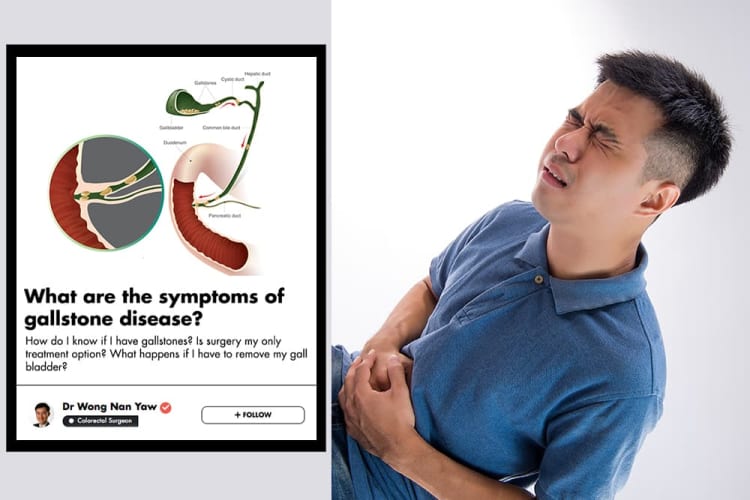The primary function of the gallbladder is to temporarily store and, at the same time, concentrate the bile juice within. Unknown to many, bile juice is secreted by the liver and not the gallbladder. After leaving the liver, the bile juice enters and leaves the gallbladder through the cystic duct which connects the liver ducts to the gallbladder.
We now understand that the gallbladder functions very similarly to a store room for spare bile. As such, removing the gallbladder will not have a great impact on one’s health and certainly should not cause a drastic deterioration.
One may expect some loose stools especially after a fatty meal shortly after removal of one’s gallbladder. This is usually transient and should not have any long term effect.
Sometimes, people with their gallbladder already removed continue to have pain at a later time. Besides the possibility of retained stones and new stones formation in the bile duct, one common reason for such pain is wrongly attributing the initial pain or discomfort to the gallstones.
Many people have concurrent digestive problems together with asymptomatic gallstones detected on a routine scan. Removing the gallbladder surgically in such cases will not address the pain. This is why one should always be confident that the pain is related to the gallstones before undergoing surgery.



